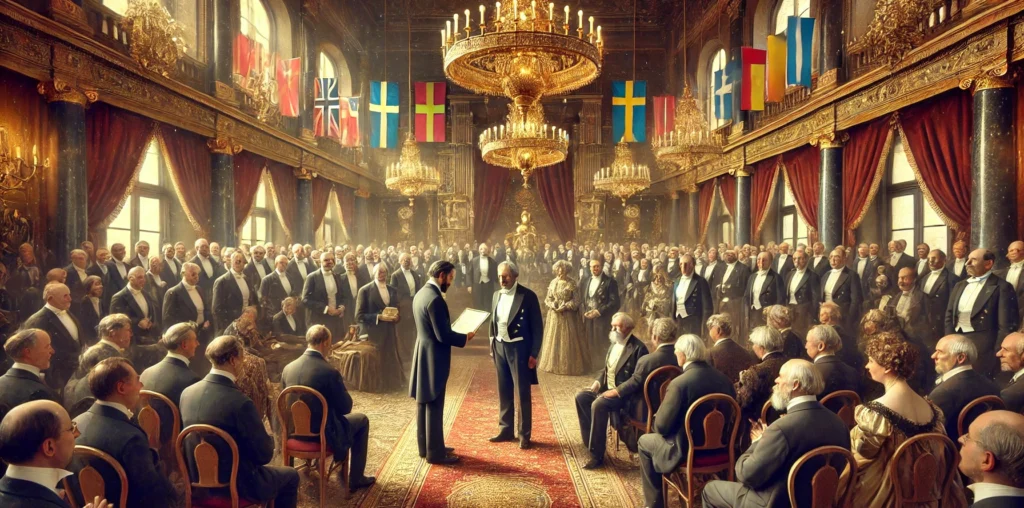Background: Alfred Nobel was a Swedish chemist, engineer, and inventor, best known for inventing dynamite. Despite his numerous accomplishments, Nobel was concerned about how his legacy might be remembered, particularly after a premature obituary titled “The Merchant of Death is Dead” criticized his invention’s role in warfare. In response, Nobel decided to leave his fortune to create a series of prizes that would recognize significant contributions to humanity.
What Happened: On December 10, 1901, the first Nobel Prize ceremony took place, awarding laureates in the fields of Physics, Chemistry, Medicine, Literature, and Peace. The prizes were awarded in Stockholm, Sweden, except for the Peace Prize, which was presented in Oslo, Norway, in accordance with Alfred Nobel’s wishes. Among the first recipients were Wilhelm Röntgen, who discovered X-rays and received the Nobel Prize in Physics, and Emil von Behring, awarded the Nobel Prize in Medicine for his work on serum therapy against diphtheria. The Nobel Prizes were presented by the Swedish king and quickly became recognized as the highest form of acknowledgment in each field. Alfred Nobel’s will dictated that the prizes should be awarded to those who had “conferred the greatest benefit to mankind,” and the selection committees worked to ensure that the recipients reflected this goal. The establishment of the prizes was groundbreaking, as it promoted the idea of international recognition for scientific, literary, and humanitarian achievements at a time when nationalism often overshadowed global cooperation.
Impact for the Future: The Nobel Prizes have played a significant role in inspiring individuals to contribute to humanity’s well-being through science, literature, and the pursuit of peace. The prizes have become the most prestigious international recognition, highlighting groundbreaking work and encouraging innovation. The Nobel Peace Prize, in particular, has helped draw attention to issues of global importance, promoting diplomacy and the protection of human rights.

